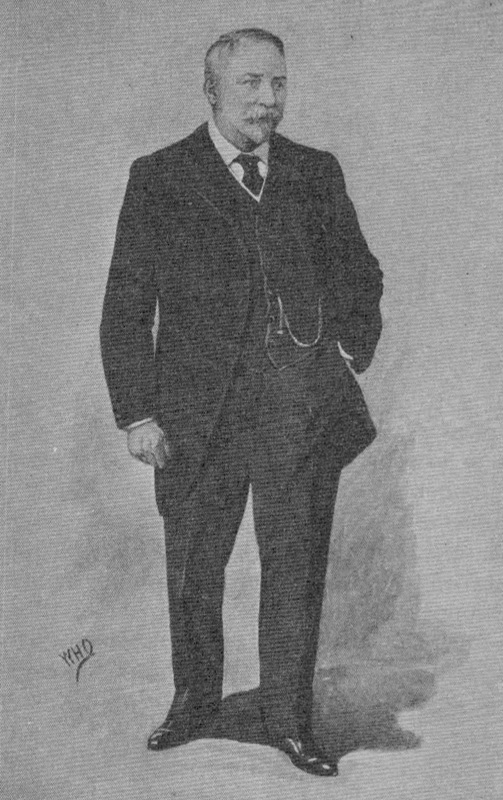
HISTORICAL EVENTS THAT TOOK PLACE ON THIS DAY IN CANADA
21 September

William S. Fielding (1848-1929)
Liberals Defeated
Sir Wilfrid Laurier's days as Prime Minister of Canada ended with a general election on September 21, 1911. It was one of the most astonishing upheavals in Canadian political history and surprised even the Conservatives who thought they had no chance of winning.
The election of 1911 was called "the reciprocity election." The Elgin-Marcy Treaty signed in 1854 (see May 16) had brought ten years of prosperity to Canada and many people hoped another deal could be made. In January, 1911, Canadian Finance Minister Fielding met American President Taft secretly in Albany, New York, and worked out a reciprocal trade agreement. Canadian raw products could be sold in the States, while Canada would reduce tariffs on American manufactured products.
When news of the deal became known, Conservative leader Sir Robert Borden was so despondent that he wanted to resign. It seemed impossible that the Liberals could be defeated in the next election, but Borden was persuaded to stay on and fight it out.
Then the tide suddenly turned. Laurier's right hand man, Sir Clifford Sifton of Winnipeg was opposed to reciprocity and joined seventeen other Liberals in signing a manifesto against it. It was amusing, perhaps startling, that while Sifton opposed reciprocity, his newspaper, the Winnipeg Free Press, supported it. Other wealthy Liberal supporters deserted Laurier, including Sir William Van Home of the C.P.R. who said that he was "out to bust the damn thing." He wanted trade moving east and west, not north and south.
It was the Americans themselves who cooked Laurier's goose. President Taft said that Canada was at the parting of the ways with Britain. Champ Clark, Speaker of the House of Representatives, said he had no doubt that Britain would joyfully see all her North American possessions become part of the United States, and added: "We are preparing to annex Canada!"
That was enough ammunition for the Conservatives. They waved the British flag in every campaign speech. When the votes were counted, the Conservatives had 133 seats and the Liberals 86, exactly the reverse of the position before Laurier called the election. Laurier never became prime minister again.
OTHER NOTABLE EVENTS ON THIS DAY IN CANADIAN HISTORY
21 September
-1812 Gananoque, Ontario, was raided by an American force.
-1818 Lord Selkirk was tried for breaking into the Northwest Company headquarters at Fort William and arresting the partners (see June 12).
-1928 Canada introduced airmail stamps.
-1963 Place des Arts was opened at Montreal.